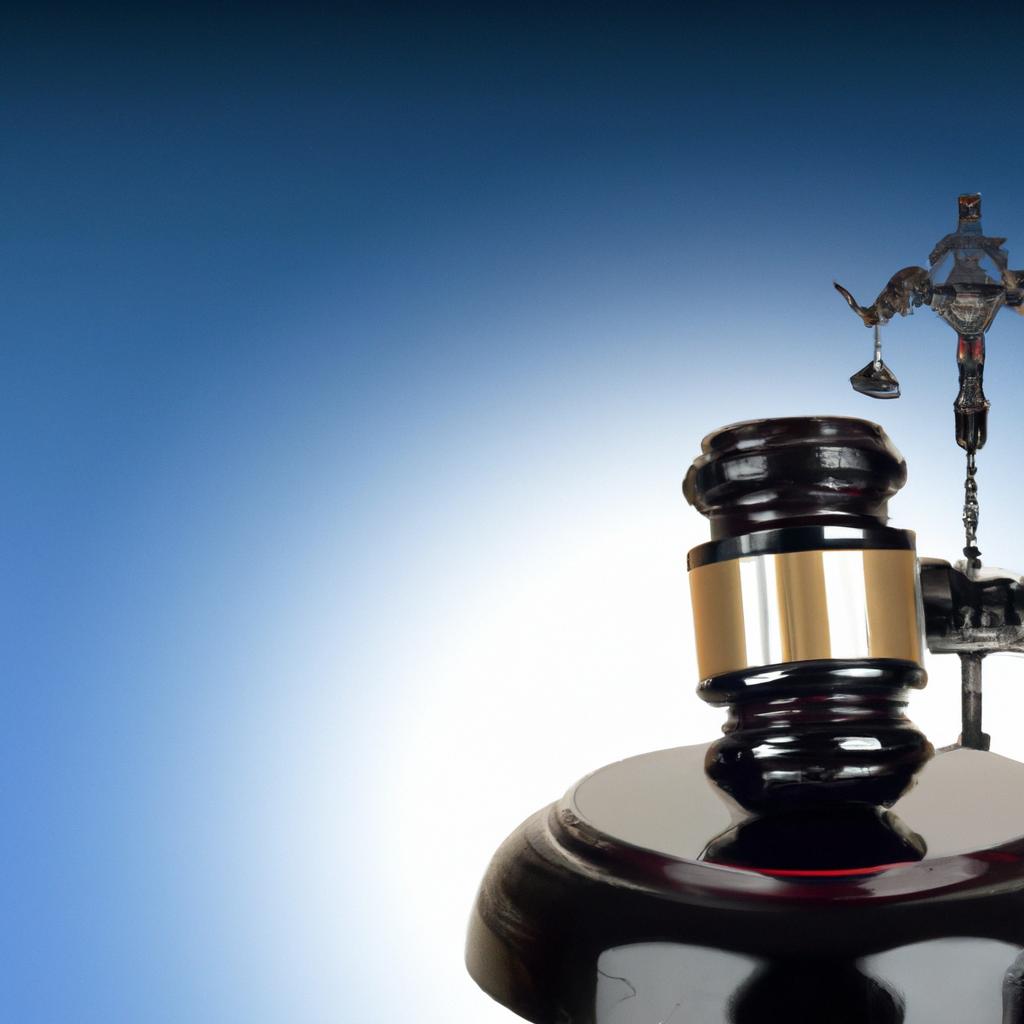In the wake of a loved one’s passing, navigating the labyrinth of legal complexities can be a daunting task. As seasoned legal professionals at Morgan Legal Group, based in the bustling metropolis of New York City, we understand the importance of proper documentation in the aftermath of one’s death. From estate planning to probate, the question often arises: how long should certain documents be retained? Join us as we delve into the intricate world of posthumous paperwork, shedding light on the duration for which vital documents should be preserved.
Important Considerations for Document Retention After Death
When it comes to document retention after the passing of a loved one, there are several important considerations to keep in mind. One key factor to consider is the type of document and its relevance to the individual’s estate and affairs. Financial documents such as bank statements, tax returns, and investment records should typically be retained for a minimum of seven years. Legal documents like deeds, titles, and insurance policies should be kept indefinitely. Personal documents such as birth certificates, Social Security cards, and marriage certificates should also be kept for the long term.
Another crucial consideration is the secure storage of these documents. It is essential to keep important documents in a safe and **fireproof** location. Consider storing them in a **safe deposit box** or a secure file cabinet. Additionally, it may be helpful to create an inventory of all documents and their locations to assist Executors and beneficiaries in locating them when needed. By carefully considering these factors and taking the necessary steps to preserve important documents, you can ensure that your loved one’s estate is properly managed and their wishes are carried out effectively.

Guidelines for Keeping Estate Planning Documents Safely
When it comes to safeguarding estate planning documents after the passing of a loved one, it is crucial to adhere to certain guidelines to ensure the protection and accessibility of these important papers. Morgan Legal Group recommends the following practices:
- Store original documents in a secure, fireproof safe or a safety deposit box at a bank.
- Make copies of all documents and provide them to trusted family members or advisors.
- Keep a digital backup of all documents on a secure external hard drive or cloud storage.
- Regularly review and update your documents as needed.
By following these guidelines, you can help prevent the loss or damage of crucial estate planning documents and ensure that your wishes are carried out effectively. For further assistance with estate planning, probate, Wills, or trusts, contact Morgan Legal Group in New York City for expert guidance and support.

The Duration for Holding onto Tax Records and Financial Statements
When a loved one passes away, it can be overwhelming to handle their financial affairs. Knowing how long to keep important documents such as tax records and financial statements is crucial in order to properly settle their estate. In general, it is recommended to keep these records for a certain period of time to ensure that all legal and financial matters are properly accounted for.
Below is a general guideline on how long you should hold onto important documents after someone dies:
- Wills and Trusts: Keep these documents indefinitely, as they are crucial for distributing the deceased’s assets.
- Tax returns and supporting documents: Keep these records for at least seven years after filing, as the IRS may audit past returns.
- Bank statements and financial records: Hold onto these documents for at least three years, as they may be needed to settle any outstanding debts or claims.

Recommended Actions for Organizing and Preserving Legal Papers
When it comes to organizing and preserving legal papers after someone passes away, it is crucial to follow recommended actions to ensure that the deceased individual’s affairs are properly managed. One of the most important steps is to determine how long to keep certain documents before disposing of them. Below are some guidelines to help you navigate this process:
- Wills and Trusts: It is essential to keep the original copies of the deceased individual’s will and any trust documents indefinitely. These papers are crucial for administering the estate and distributing assets according to the deceased’s wishes.
- Financial Records: Documents such as bank statements, tax returns, and retirement account statements should be kept for at least seven years after the individual’s passing. These records may be needed for tax purposes or to resolve any outstanding financial matters.
- Property Deeds and Titles: Property deeds, vehicle titles, and other ownership documents should be retained for as long as the property or asset is owned by the deceased individual’s estate. These papers are essential for transferring ownership to heirs or beneficiaries.
Q&A
Q: How long should you keep documents after someone dies?
A: It depends on the type of document and its importance. Generally, it is recommended to keep documents for at least seven years after the individual’s death.
Q: What are some examples of important documents to keep?
A: Important documents to keep include wills, trusts, financial records, insurance policies, and property deeds.
Q: Why is it important to keep documents after someone dies?
A: Keeping documents after someone dies is important for settling their estate, closing accounts, and distributing assets to beneficiaries.
Q: Are there any documents that can be disposed of sooner?
A: Yes, documents such as utility bills, credit card statements, and tax returns can generally be disposed of after one to three years.
Q: What is the best way to organize and store important documents?
A: It is recommended to create a filing system or use a safe deposit box to organize and store important documents. Make sure to inform trusted individuals of their location.
Q: Should digital copies of documents be kept as well?
A: Yes, keeping digital copies of important documents is a good idea for backup purposes. Store them securely on a password-protected device or on a cloud storage service.
Wrapping Up
In conclusion, determining how long to keep documents after someone dies can be a daunting task. It is important to carefully review and organize all paperwork to ensure that valuable information is preserved and unnecessary clutter is discarded. While there are general guidelines for how long to hold onto various documents, each situation is unique and may require different considerations. By taking the time to thoughtfully manage paperwork after a loved one’s passing, you can honor their memory and protect their legacy in a meaningful way.
 The loss of a loved one is a difficult and emotional time for anyone, and the thought of dealing with their paperwork and documents can add even more stress to an already overwhelming situation. Many people may be unsure of how long they should keep their loved one’s documents after they pass away. In this article, we will explore everything you need to know about how long to keep documents after someone dies, including what documents to keep, how to organize them, and why it is important.
The loss of a loved one is a difficult and emotional time for anyone, and the thought of dealing with their paperwork and documents can add even more stress to an already overwhelming situation. Many people may be unsure of how long they should keep their loved one’s documents after they pass away. In this article, we will explore everything you need to know about how long to keep documents after someone dies, including what documents to keep, how to organize them, and why it is important.
What Documents Should You Keep?
When it comes to keeping documents after someone dies, it’s important to take a comprehensive approach. This means keeping all documents that are relevant to the deceased’s estate, financial accounts, and personal affairs. Some important documents to keep include:
1. Death Certificate: This is one of the most important documents to keep after someone dies. It serves as proof of their passing and is required for many legal and financial matters.
2. Will or Trust Documents: If the deceased had a will or trust, it is important to keep these documents as they will outline their final wishes and how their assets should be distributed. If there is no will or trust, the state’s laws of intestacy will determine the distribution of assets.
3. Life Insurance Policies: Keep any life insurance policies and documents related to them. This will ensure that the beneficiaries receive the claim money after the policyholder’s death.
4. Social Security Number: The deceased’s Social Security Number (SSN) will be needed for various financial and legal transactions, so be sure to keep it safe.
5. Financial Account Statements: This includes bank statements, investment account statements, retirement account statements, and mortgage and loan statements.
6. Property Deeds and Titles: Documents related to any properties owned by the deceased, such as deeds and titles, should be kept.
7. Tax Returns: It is important to keep the deceased’s tax returns for at least seven years in case they are needed for tax purposes.
8. Medical Records: While not necessary to keep, it may be helpful to have the deceased’s medical records on hand in case there are any questions or concerns about their health before they passed away.
9. Marriage or Divorce Documents: If the deceased was married or divorced, it’s important to keep these documents as they may be needed for legal and financial matters.
How Long Should You Keep These Documents?
The general rule of thumb is to keep these documents for at least seven years after the individual’s death, but some may need to be kept for longer. Here’s a breakdown of how long to keep specific documents:
1. Tax Returns: As mentioned earlier, tax returns should be kept for at least seven years after the date of death.
2. Financial Account Statements: Keep these statements for at least three years, but it may be wise to keep them for a longer period, especially if the estate is still in the probate process.
3. Property Deeds and Titles: These should be kept indefinitely or until the property is sold.
4. Insurance Policies: Keep life insurance policies for as long as they are valid. If the policyholder has passed away, keep them indefinitely.
5. Medical Records: These can be disposed of after a few years, as they may contain sensitive information. However, if the death was caused by a medical condition, it may be wise to keep them for a longer period.
6. Marriage or Divorce Documents: These should be kept indefinitely, as they may be needed for legal and financial matters in the future.
7. Will or Trust Documents: Keep these indefinitely or until the estate is settled.
Organizing and Storing the Documents
It’s important to keep these documents in a safe and organized manner. Consider creating a filing system specifically for the deceased’s documents and keep them in a secure location, such as a safe or locked file cabinet. It may also be helpful to have digital copies of important documents in case the physical copies are lost or damaged.
Why It’s Important to Keep These Documents
Keeping these documents is not only important for legal and financial reasons but also for honoring the deceased’s last wishes. By having these documents on hand, you can ensure that their final wishes are carried out and their assets are distributed according to their wishes. It also makes it easier for loved ones to handle any remaining legal or financial matters and can help to avoid any potential disputes or complications.
In Conclusion
Losing a loved one is never easy, and dealing with their documents and paperwork can be a daunting task. However, by following the information outlined in this article, you can ensure that you are keeping the necessary documents for the appropriate amount of time and in an organized manner. Remember to keep these documents safe and secure and be sure to update them regularly to reflect any changes. Ultimately, keeping these documents will not only benefit you but also honor the memory of your loved one.






